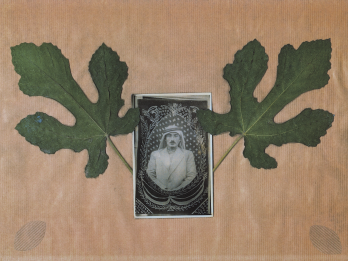Takkanot Kandia (Regulations of Candia): On Cursing
The Jewish Community of Crete
1504
A protective fence against those who curse the public and open their mouths without restraint with foul language.
The Lord shall cut off all flattering lips, and the tongue that speaks proud things. Who have said, With our tongue will we prevail; our lips are our own: who is lord over us? (Psalms 12:4–5)
We, the undersigned, have seen that louts and oppressors have multiplied greatly, braying and opening their mouths without restraint against the community, may God preserve it. They cast opprobrium like bitter and cursed waters, as the bees do (Deuteronomy 1:44) toward heaven, and great is their evil in the land. Furthermore, new ones have recently come, who were not previously feared [see Deuteronomy 32:17]; they consult the spirits of the dead, and their voice is like a ghost out of the ground, and their speech whispers out of the dust [see Isaiah 29:4]. When they grew hungry and foamed, they widened their mouths and lengthened their tongues in their throat, in their din and in their multitude, to profane and curse the souls of the fathers of all members of the congregation in general, small and large, whoever they are. They do not distinguish between saint and sinner, between the learned in Torah and those who are not, between a servant of God and one who does not serve Him. They are all tarred with the same brush, and some of them curse the multitude, besides the fathers, the rabbis, and many other such things, until the earth cannot contain all their words, and they are devious in their ways (Proverbs 2:15). In their sin, they knew they were cursing, and this is a criminal transgression, and behold these things are known, that these people reviled the Lord [see Numbers 16:30], and their crime is too great to bear [see Genesis 4:13], for as the sages say, anyone who curses the multitude will be unable to repent.
In addition, those people have performed evil, for they cursed souls that have been made noble through His holy spirit, as it is written: Let us make man in our image, after our likeness (Genesis 1:26), and it is stated afterwards: and He breathed into his nostrils the breath of life, and man became a living soul (Genesis 2:7); woe to their soul for they have done evil. Some open their mouths without restraint, and their tongues range over the earth (Psalms 73:9), saying foul-mouthed things, each one to his fellows, filthy and insane comments, reviling with foul mouths like the gentiles of the land, barefacedly out in the open, with vehement curses, wanton blasphemy, and harsh abuse. They do not hold back their words and are not ashamed, neither before God nor before people, and that too is a very great sin, a criminal offense. As the sages said, whoever speaks foully, they make hell deeper for him. And they also said, everybody knows why a bride goes under the canopy, but if anyone utters something filthy about it, even if a sentence of seventy years of good fortune were passed for him, it becomes bad, and they also said that due to the sin of foul-mouthed speech “evil decrees are renewed, and a man’s children [die”; b. Shabbat 33a]. There are so many other similar statements that if I were to count them, they would number more than the sand (Psalms 139:18).
Therefore, we have agreed that from now on, these men who have sinned with their souls [see Numbers 17:3] should guard against sinning with their tongue, lest they wither in their sin. They should be silent and put their hand on their mouths and return from their evil ways and their perverse deeds. If they do this, they will receive a blessing from God and righteousness from the God of their salvation [see Psalms 24:5], but if not, then if anyone testifies about someone that he has transgressed this regulation of ours, we have agreed that the cantors of our community, may it be preserved, should not include him in any of the four synagogues in a minyan [quorum], and they will not appoint him to read the Torah or perform any holy duty, for a month. If he is one of the evil and low ones who do not come to the synagogue either on the New Moon or on the Sabbath, we have agreed that they should harass him in all aspects of his life, and the officers of the community, may it be preserved, who are serving at the time should proclaim about him and warn the people not to give him work for as long as they see fit. Nobody will be permitted to be in his company, neither on joyous occasions nor while in mourning, until he submits his uncircumcised heart and stands and asks forgiveness from the entire congregation—all the people will hear and be afraid, and will not act presumptuously again (Deuteronomy 17:13).
This occurred in the year 5303 [1543] in the day of the honorable David Kolei, may he be preserved, the condestabulo1 of our community, may it abide, Amen, on 28 Tishri.
Notes
[The condestabulo was the official representative of the Jewish community, recognized by the Venetian government.—Trans.]
Credits
Published in: The Posen Library of Jewish Culture and Civilization, vol. 5.



